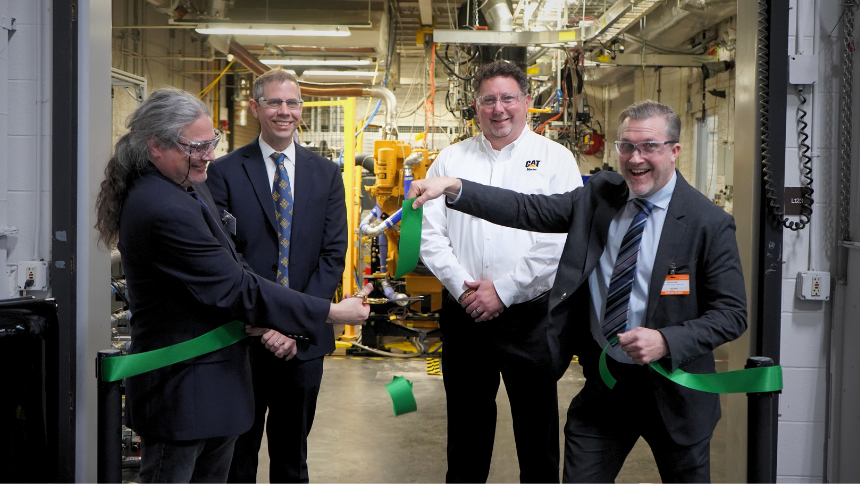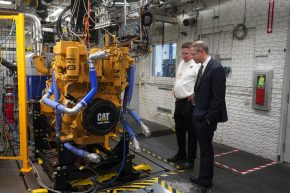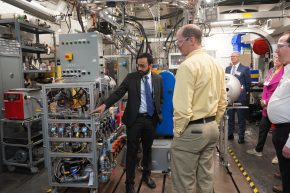
Innovators at ORNL are working to reduce pollution in our waterways
Cargo ships account for nearly three percent of all greenhouse gas emissions. A new, innovative partnership hopes to bring that emission down to zero.
When you think of greenhouse gas emissions, you may think of transportation, deforestation, agriculture, waste management and energy production. However, about three percent of greenhouse gas emissions come directly from maritime activities. Researchers at ORNL are looking into how new technology could help minimize that.
Scientists at Oak Ridge National Laboratory (ORNL) alongside engineers at Caterpillar have partnered to investigate using methanol as an alternative fuel source for four-stroke internal combustion marine engines (Cargo ships).

“We’re talking about how do we move from a carbon based fossil fuel systems to electrification, and do that in a clean and efficient manner,” said Dr. Rick Raines, the Interim Associate Laboratory Director, Energy Science and Technology Directorate (ESTD) at ORNL. “This effort that you’re seeing today is an example of us taking from science and transitioning that into application, “Raines said.
What are the benefits of methanol?
Methanol is a fuel alternative to diesel, and it holds a high value because it reduces carbon emissions. In addition to de-carbonization, it can also reduce emissions of nitrogen oxides and sulfur oxides, which are both harmful to our atmosphere.
Jim Szybist, the section head for Propulsion Science at ORNL explained it best, “From a new fuel utilization standpoint, methanol is a good fit for many applications. For example, commercial vessels are not made with a lot of extra room on board. How much room the fuel takes up is a really important factor.”
The tank capacity for methanol can be small than a diesel tank, and in most cases take up less space than a battery.
The need for innovations comes into play as methanol is much more difficult to ignite than diesel.
“It’s kind of the antithesis of what you would want from diesel fuels. So that’s why we need to do research in this area and figure these problems out,” Szybist said.
Under the terms of the partnership, ORNL researchers will work with Caterpillar engineers to identify, develop and test hardware configurations and strategies for integrating this fuel alternative into ships.

Years of testing to come
Over the course of the next several years, both agencies will be working at the Department of Energy’s National Transportation Research Center at ORNL off Hardin Valley Road. Caterpillar installed one of its in-line 6-cylinder marine engine, which has been modified for methanol use. It’s the model that the research team will be working on to manipulate the methanol for its desired purpose.
Furthermore, the team plans to explore engine combustion strategies including dual-fuel, dimethyl ether reforming and spark-ignited pre-chambers.
On Wednesday afternoon, community members, media and innovators from other departments at ORNL gathered to learn about the budding partnership. Attendees had the opportunities to explore the lab, ask questions and gain a deeper understanding of the benefits of methanol.
“I’m so proud to be working on this important topic and believe that we’re about to make a great difference in this area. So I’d really like to thank this whole team that came together. It’s great to be working with so many great people,” Szybist said.
Like what you've read?
Forward to a friend!

